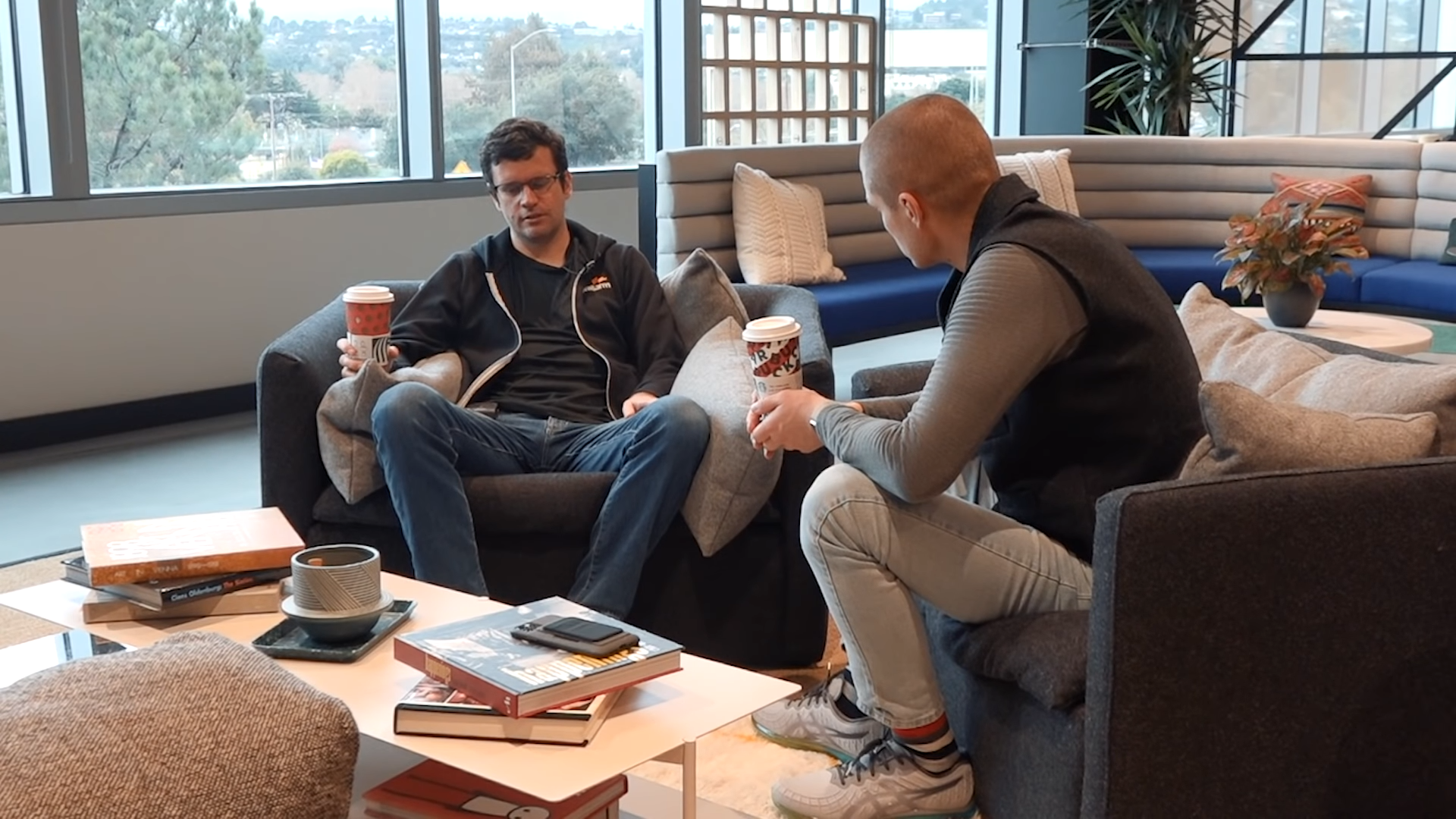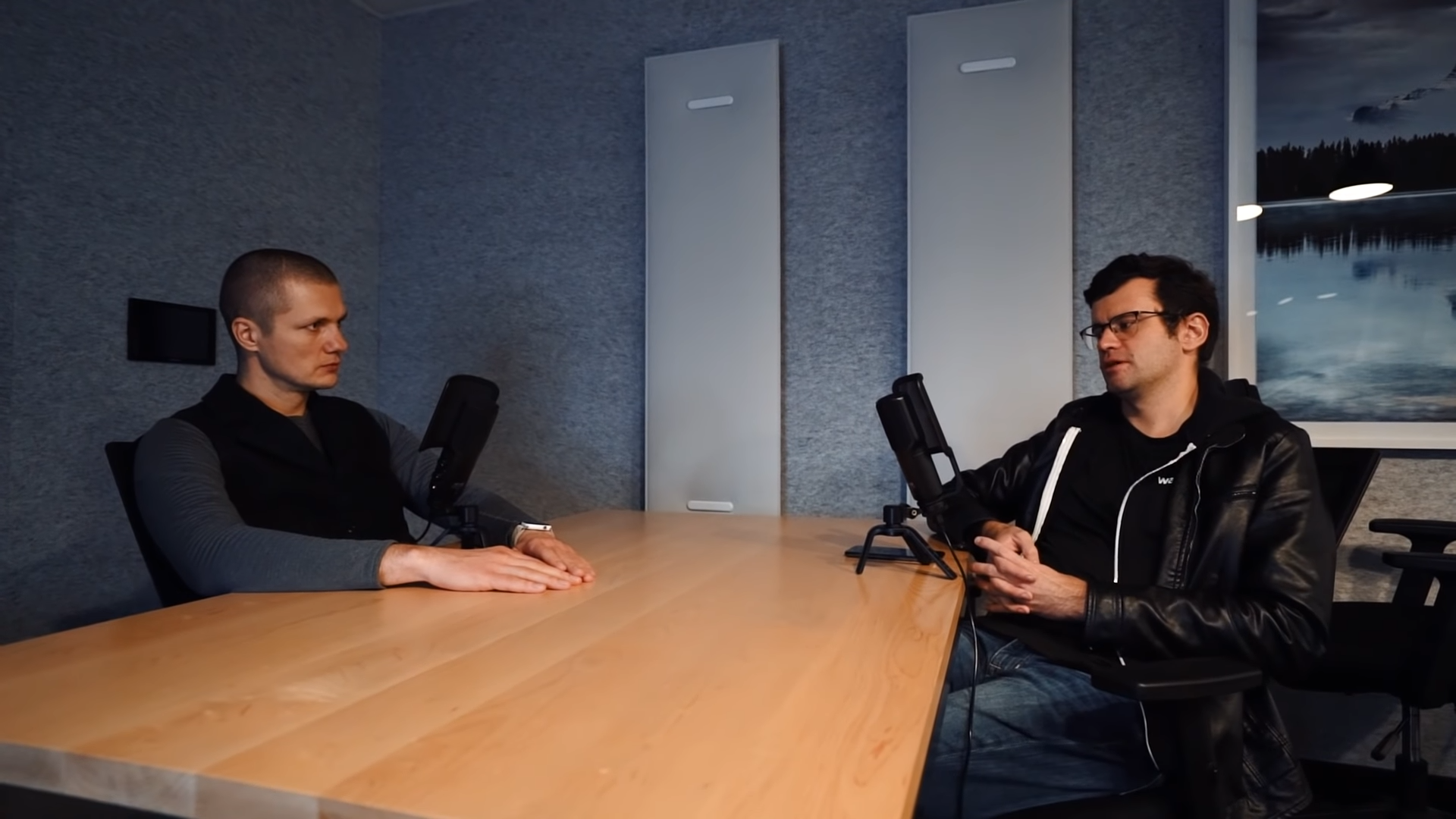In the interview, we discussed why hacking is not always related to computer security, why Jobs, Zuckerberg and Bezos can be considered hackers, and how a team from Russia can attract its first investments.
Please attach the video from the interview below

How it all started
In Russian, a hacker is associated with an attacker who steals money from an electronic bank, penetrates other people's computers, and generally does something bad. In a broader sense, in Silicon Valley, the word "hacker" means people who violate the standard rules of the game and get additional achievements from any process, regardless of whether they are somehow related to computers or security, or not. In general, I also have a background as a security expert, so I can be called that hacker too.
I started to deal with security since childhood. There used to be a magazine called "Hacker", where they wrote cool articles on how to hack into something - phones, machines, etc. Having read it for the first time in the fifth grade, I did not understand anything. But there was some kind of romance in it, that you can hack something. And from that moment I began to deal with security.
I earned my first money in 2009. I signed the first audit contract with some Russian CMS. I was paid about 50 thousand rubles. I audited their code, checked applications, programs, looked for vulnerabilities.
Founding a startup
I started consulting when I realized that it was almost impossible to find very cool experts in Russia at that time - people had poor education. And I started teaching. More for myself than for people.
Wallarm, my startup, has basically two products right now. The main product we have been working on since 2013 is a web application security platform. This is a screen that stands between the Internet and the site and blocks malicious requests. A distinctive feature of our product is that it can also scan for vulnerabilities.
Where the name Wallarm comes from: "wall" is a wall, "arm" is a hand. Accordingly, this is a combination of a passive firewall approach, that is, a wall, and an active approach of scanners, that is, hands, in a single platform.
We also continue to engage in consulting - this is our second product.
We now have about 150 clients all over the world. This is not a very large figure.
The average check is somewhere around $ 75-80 thousand per year.
The company now has two offices - in San Francisco and in Moscow. The team employs approximately 80 people. Plus, there are also remote employees in London, Germany and Switzerland.

Networking in Silicon Valley
For me, Silicon Valley is networking. Being here and not communicating with people is absolutely useless and very expensive.
The biggest influences here have been the partners at Y Combinator. This is Lookout, a mobile security company. Mark Pincus, one of the founders of Zynga. He was one of the early investors in Facebook. He greatly changed my view of the attitude towards people who continue to work actively even after they have the opportunity to do nothing at all. Vinnie Smith has changed a lot in me. Vinnie founded Quest Software, then sold it. Went to the IPO and bought out Dell. It was he who invested $ 8 million in us, or rather his fund.
Y Combinator is a great way to meet people. The program is based on what you spend with partners for 30-40 hours, communicate on any topics that interest you, and they accordingly share their experience. We had an absolutely incredible female partner in our group, her name is Dominic. She did design at Apple. That is, she was the product designer who came up with what a large-screen Mac would look like. She asked us what our main competitive advantage is. We replied that we have a recheck of attacks, scanner integration. She says: "Why, then, is it nowhere to be seen in your interface?" That is, she explained to us that the most important competitive advantage should be visible immediately.
Attracting investment in a startup
Do you need to raise money for a startup that already makes money?
It seems to me that it is not necessary. The only question is what it means to make money successfully. For some it is earning a million dollars, and for others it is 100 million. Therefore, it is a matter of growth and development. If you need money to grow effectively, you understand that you cannot develop without money, you need money. But money must work with maximum efficiency. And even if you spend them on experiments, and they do not bring results, you can still assume that the money worked out. They showed which experiment failed.
What if you need 10 million and you only get 3?
This is totally normal. You won't spend 10 million right away. Think of it as the first piece of 10 million. Show investors some intermediate milestone and get the rest of the money. A lot of companies do this and raise several rounds.
Where can teams in Russia start looking for investments? Go to Skolkovo, or come straight here to America?
It seems to me that if they have a product that grows, they themselves will be found. Investors are constantly looking for someone to invest in. And in general it's not a big problem to tell about yourself at least to a minimum. If suddenly no one knows about you at all, launch on Product Hunt.

Business hacking in Silicon Valley
What do you think of business hacker Zuckerberg? What was his hacking?
Social networks were there before Facebook. There were simply no massive ones. I think the coolest thing they did was product planning. They just picked features that they found useful and that helped them grow well. If not, down with them. Facebook is written in PHP, which no one usually writes big projects in these days. But they still support it, change it, etc., because it gave them the opportunity to develop quickly. Facebook's global goal is growth.
And Amazon?
I know a great quote. There was a dinner attended by Jobs, Gates, Bezos and a bunch of other billionaires. And Bezos says to everyone: “My company will be worth more than all of yours combined. You sell appliances, and I sell everyday goods. Everyone needs my products. " And so it turned out. Therefore, Bezos's story is about big growth. Starting with Amazon Web Services being the very first mainstream cloud provider that, for a second, was owned by people who sold T-shirts and all kinds of other clothing. He realized that he needed this cloud to grow. So I took it and created it.
What then is Salesforce hacking?
The fact that they figured out that you don't need to download their program to your device. You just go to their website and everything is already online. This was not the case before Salesforce.
What is your hacking?
Yes, in many ways. We have an interesting system. We are experts who decided to create this product because we understand that we need it and we really want to create something that works very well. Our hacking lies precisely in the fact that we figured out how to combine rather incongruous things. It is very difficult to talk about yourself, because the requirements for yourself are always high. But I think that if we moved to the Valley and are doing a startup here, then we can probably still be called hackers.